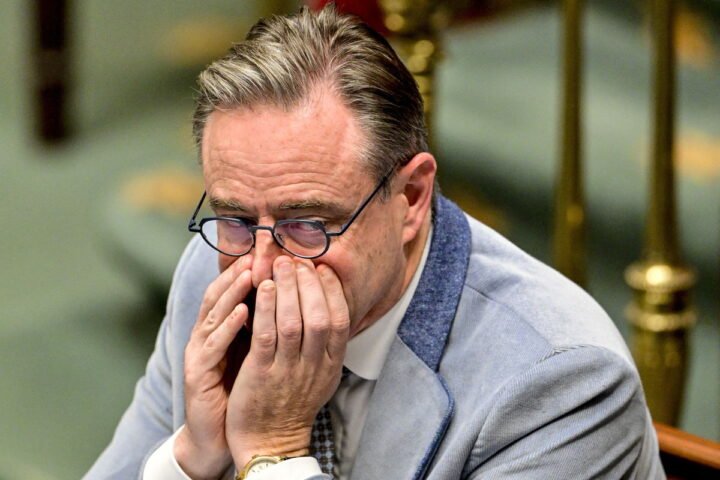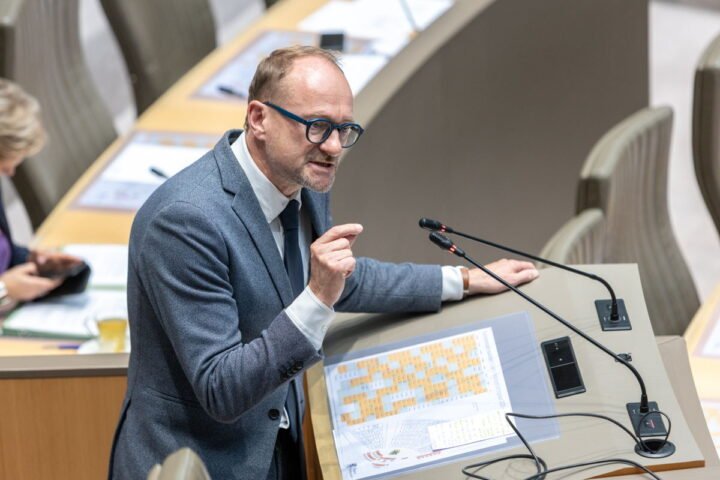BERLIN – In a dramatic twist of fate, Friedrich Merz marks his first 100 days in office with an array of considerable challenges and contentious decisions, reports 24brussels.
Merz, who assumed office on May 6, is navigating tumultuous waters, including persistent threats from Moscow, economic challenges, a surge in asylum seekers, and the fallout from Israel’s military actions in Gaza.
Unlike his predecessor Olaf Scholz, who faced Russia’s full-scale invasion of Ukraine shortly after taking office, Merz is presenting himself as a proactive leader with an ambitious ‘immediate action plan’ aimed at demonstrating Germany’s forward momentum by mid-year.
The angry 18
Despite these aspirations, Merz’s coalition—comprising Christian Democrats and Social Democrats (SPD)—suffers from a precarious majority, leaving it prone to disruptions. His initial election was marked by controversy as he received 18 fewer votes than required during the first ballot, highlighting internal discord.
The infighting stems from Merz’s polarizing leadership style and his abrupt abandonment of Germany’s strict debt rules, drawing ire from conservative factions within his party. Moreover, left-leaning SPD lawmakers remain wary of his hardline conservatism.
His tenure has seen a notable diplomatic misstep. Merz unexpectedly shifted Germany’s stance on the Israeli military operation in Gaza, imposing sanctions without cabinet consultation, which could significantly impair his standing within the coalition.
The trillion-dollar man
In a landmark move, Merz’s administration redefined fiscal policies by allowing defense spending beyond 1% of GDP to bypass constitutional borrowing limits, which had previously constrained financial flexibility. This approach has paved the way for an anticipated €850 billion in debt during his administration—representing a considerable increase compared to previous periods.
Much of this funding is earmarked to meet NATO’s 3.5% defense spending target by 2035, signifying a significant overhaul for a nation traditionally reluctant to expand military expenditures. While early indicators show slight improvements in business confidence, Merz’s economic strategy remains under scrutiny, particularly in the face of potential tariffs imposed by the US on EU goods, posing a threat to Germany’s export-driven economy.
Nine, not nein
In diplomacy, Merz has surpassed his predecessors by visiting nine European capitals within his first month and prioritizing relations with Poland. This eagerness displays his intent to restore German leadership within Europe.
However, the chancellor’s preference for informal discussions with key European allies—like France and Poland—over formal EU institutions raises questions about his commitment to collective European initiatives.
Despite his strong diplomatic outreach, Merz’s partnerships have encountered hurdles, reflecting the challenges in transforming intentions into tangible policy achievements. His recent decisions to impose limits on arms exports to Israel mirroring public sentiment illustrate a shift from earlier positions while testing his coalition’s solidarity.
475 Auf Wiedersehens
During his first 100 days, the government has turned away 475 asylum seekers at the border, with approximately 23,000 individuals applying for asylum. Merz’s “Migrationswende” strives to address migration but remains more rhetorical than practical, with critics arguing that his border measures have not yielded significant results.
Although his administration aims to curtail irregular migration, the strategies employed so far appear insufficient to enact meaningful change.
Diplomatic accord
A recent Forsa poll indicates that 56% of Germans approve of Merz’s diplomatic efforts, with substantial support extending beyond his political base. The German media has dubbed him “Außenkanzler,” signifying his assertive foreign policy approach.
However, despite some diplomatic successes, Merz struggles with public perception, facing a higher dissatisfaction rate compared to Scholz after his first 100 days—65% versus 40%. His frequent policy reversals, notably regarding the debt brake, underpin growing skepticism about his leadership capabilities.
The long and short
As Merz navigates his early tenure, hopes for a swift economic recovery hang in the balance. A failure to deliver on expected outcomes could drive more voters toward alternative political factions, underscoring the significance of decisive leadership moving forward.
(mm)










